Yucatan News: UFOs, Bees and Weather
Weather: Cold and Wet
During this past week, over a period of approximately four days, the weather in Yucatan went down, in some places, to as low as 5 C (41 F) and 9 C (48.2 F), with scattered rain. This might not sound so bad to someone who lives in Canada or the northern United States, but they might have a different take on it if they tried those temperatures in houses built for the tropics, sleeping in hammocks with just a rebozo (shawl) to keep you warm. This was Norte # 36, complete with strong winds, and the winter is not over yet.
Progreso’s Impressive Carnival Numbers
We always have to laugh when we see old travel pages online that describe Progreso, Yucatan, as a “sleepy little fishing village.” Progreso has probably come farther, faster, than any other small city we can think of in the Yucatan. This year, 300,000 visitors attended Carnival in Progreso! We would imagine that some of that crowd live in Merida and drove up on a daily basis, but the crowds were definitely large and varied. With increasing numbers of local participants, plus domestic and foreign tourists, Progreso’s Carnival is ready to enter competition with those from other beach towns on both a national and international level. In the meantime, Progreso also produced 39 young athletes headed for the Mexican Youth Olympics, four young ballerinas who just participated in a dance contest and workshop in Merida, and hosted a group of foreign podiatrists who came to provide services to those who cannot otherwise afford them. If you are looking for a sleepy little fishing village, Yucatan still has them, but Progreso graduated from that category and never looked back.
Yucatan Classical Ballet Company Comes Home
The Yucatan Classical Ballet Company has been on tour in North Carolina, where they danced at the BeBe Theater. Asheville and Yucatan have a long history together. It often feels as if there is always a flow, in both directions, of cultural events between Asheville and Yucatan. Asheville is an official Sister City to Valladolid and, several times every year, we have cultural productions from Asheville performed in Merida. Merida is also home or a vacation destination for many residents of Asheville. Now that Yucatan’s Classical Ballet is back here at home, look for regular performances to begin again.
Second UFO Alert: What Did You Do Last Weekend?
Saturday, February 21, 2015. Carnival was over and all was quiet. Everyone was supposed to rest in preparation for the festivities that will happen during upcoming Semana Santa. And it was quiet, but no UFO aficionado was sleeping. Instead, they were all outside, at official locations throughout the Yucatan Peninsula, watching the sky for UFOs. This began as a fun little event that was only going to take place in Merida, Ticul, and Valladolid... but it did not take long for the news to spread throughout Yucatan, Campeche and Quintana Roo. The only requirement for joining was to let the organizers know where the group would be and how many they expected to be watching. The hours were 9:00 PM until midnight or 1:00 AM, but some vowed to keep looking for UFO's until dawn. There was no fee for adding a location and no fee for attending at any of the more than fifteen locations, and no special equipment to buy. The organizer simply wanted the stories of anyone who saw something odd in the sky that night. Findings of this event will be made available through a short film and at the Paranormal Museum in Merida (Calle 63-B #230 x 8 y 10, Colonia Cortes Sarmiento. Admission: $30 pesos adults and $20 pesos children, students and ISEN). For those of our readers who are not familiar with newspapers in Yucatan, the people here (including the expats) love a good mystery or legend and almost every major paper has an Enigma column. If you would like to participate in the next UFO Alert, e-mail the organizer at misterios03@hotmail.com.
Marriage of Mars and Venus
Sunday, February 22: Yucatan is strategically located so that star gazers were able to see any number of wonderful events in the night sky. This time, it was the coming together of the images of Mars (the man) and Venus (the women). Although this event began at 5:00 PM, the angle here in the Yucatan made it visible for two hours.
Africanized Bees Attack Again
Since the beginning of this year, there have been three attacks on people by Africanized bee swarms that were growing in public buildings. These attacks occurred in the Atrium of the Cathedral in Merida, at Rogers Hall College, and now at the Merida Psychiatric Hospital. Several victims had to be hospitalized due to anaphylactic shock. Please keep an eye out for bees whenever you visit large public places and call the authorities if you have bees at your home.
City Council of Child Participation in Merida
There is to be a new arm of the City Council in Merida, made up of 19 sixth graders. Their job will be to consult with the City Council on issues that are important to young people. They will submit proposals and ideas on the problems they encounter in their family, school, environment and community. Merida, and all of Yucatan, has a long history of including children in government in this manner. This is part of what makes this state so stable when others are not always so. The City Council of Merida will also be working with the Municipal institute for women to find grant money for women and children who are victims of domestic violence. It looks as if we are off to a great 2015 in Merida!
New Culture of Urban Forestry in Yucatan
Through the years, residents of towns and cities have planted trees that ended up being in the wrong place or the wrong species. In other cases, residents have moved away and trees have either grown wild, grown through building walls, or become diseased. Many urban trees have been injured when their roots were cut so that new streets could be opened. Now, in a joint action by civil agencies, universities, industries and society at large, urban trees throughout the state will be cared for, removed or, in some cases, replaced with the proper species. This is yet another important step in successful urban planning. The new urban forestry activities will begin in Merida, so don’t be surprised if traffic is slowed in places because of tree work.
Congenital Heart Defects in Yucatan
National statistics show that Yucatan has approximately 300 babies born with congenital heart disease every year. But the good news is that the babies born with this in Yucatan have world class health care available to them. The babies who have congenital heart disease are identified at 16 weeks gestation through ultrasound. After that, the Augustine O’Horan General Hospital, ISSSTE and IMSS in Yucatan, Quintana Roo, Campeche, Tabasco, and Chiapas, plus the Cardiology Department of the Regional Specialty Hospital in Merida, all swing into action. Approximately a quarter of these babies will need surgery in the first year of their lives. All of the cardiology departments in Merida have a working relationship with the Division of Cardiology at Children’s Hospital in Mexico City, and the Regional Specialty Hospital has a 30-year relationship with Mercy Hospital of Iowa in the United States. The children’s cardiology program is called Cable Lifeguard and assists in the comprehensive care of up to 20 children with complex cardiac problems per year. With no identifiable cause for congenital heart disease, the children who suffer from it in Yucatan have a safety net of world class care to support them as they overcome all of their obstacles. As an aside, we wondered about care for children not covered by insurance. As it turns out, these hospitals and their foundations are not without hearts. Costs for the care of uninsured babies, especially surgical costs, are absorbed by the hospitals ISSSTE and IMSS, and that also includes Mercy Hospital of Iowa.
Dengue Fever Numbers Down 70% in Yucatan
Two factors are affecting the dengue fever numbers in Yucatan. First, temperatures have been low this winter, slowing the breeding of mosquitoes. Second, the people are working hard to clean not only their own property, but any vacant properties nearby, which also denies mosquitoes a place to breed. Health officials request that anyone with symptoms of dengue fever (headache, intraocular pain, fever of 39 C (102.2 F), nausea and vomiting) please do not self-medicate. Immediately begin oral hydration and seek medical attention.
Chicken Pox Cases Doubled
The number of cases of chicken pox, in January 2014, was 126. This year, for the same month, there were 234 cases of chicken pox in Yucatan. This disease is spread through the air and by touching the lesions on an infected person. While the rash is usually a benign viral disease of childhood, it remains in the human body, near the spine, and can reappear as painful and sometimes deadly shingles in adults. Some child care centers are closing due to high numbers of chicken pox. This results in more children in public places. Hand washing, covering your mouth when you cough or sneeze, and staying out of crowds of children will help stall this outbreak.
Merida: “Safe City” Designation
For the past year, Merida has been going through the long process necessary to achieve certification as one of the Safe Cities of Latin America and the Caribbean. This is a program that began in Colombia in 1989 and is gaining ground now around the world. This is an honor earned by a rigorous certification process. The name does not mean that a city has no crime. What it means is that a city has zero tolerance for situations within their culture that stifle success for some groups but not others. Instead of working from the outside to simply bring down numbers of crimes, this program’s focus is on creating a sustainable cultural environment, supported by permanent governmental programs, that makes it possible for every group in a society to grow and flourish. Mexico’s only stumbling block was starting government social programs over with every new election. But that has changed and Merida now has 26 government programs of social support that are completely sustainable, permanent and under review. It is expected that, within four short more months, Merida, Yucatan will become one of the few certified Safe Cities of Latin America and the Caribbean. To learn more about this program, please visit the parent organization’s website: Institute Cisalva.




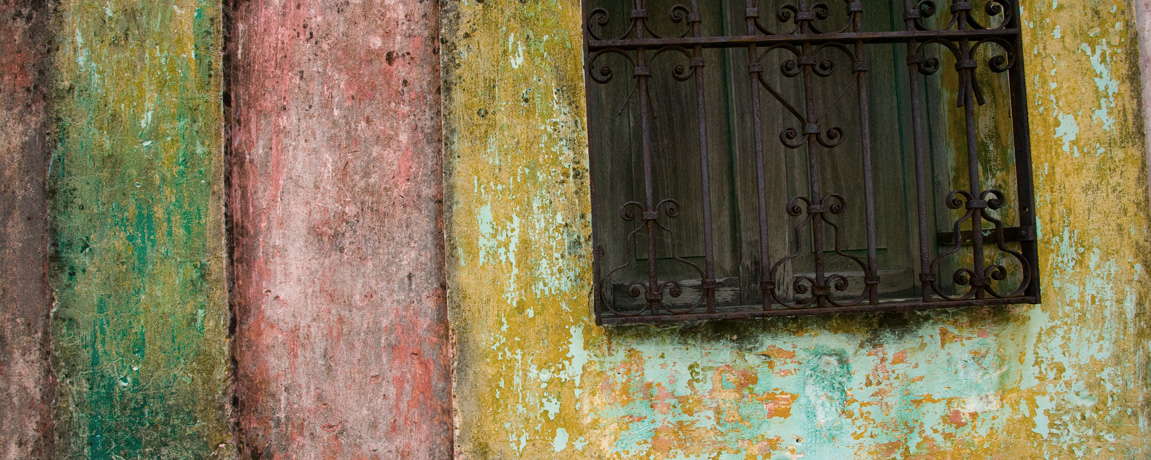


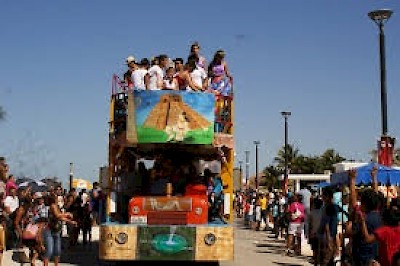

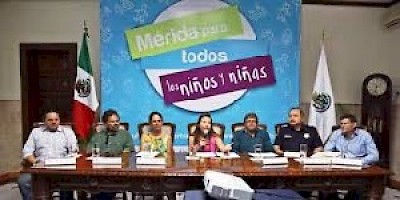
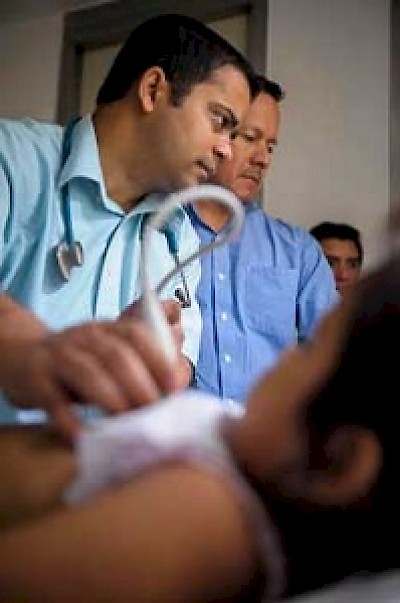
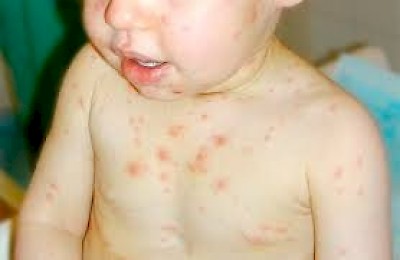

Comments
Miguel 10 years ago
Great job guys!
Reply
(0 to 1 comments)